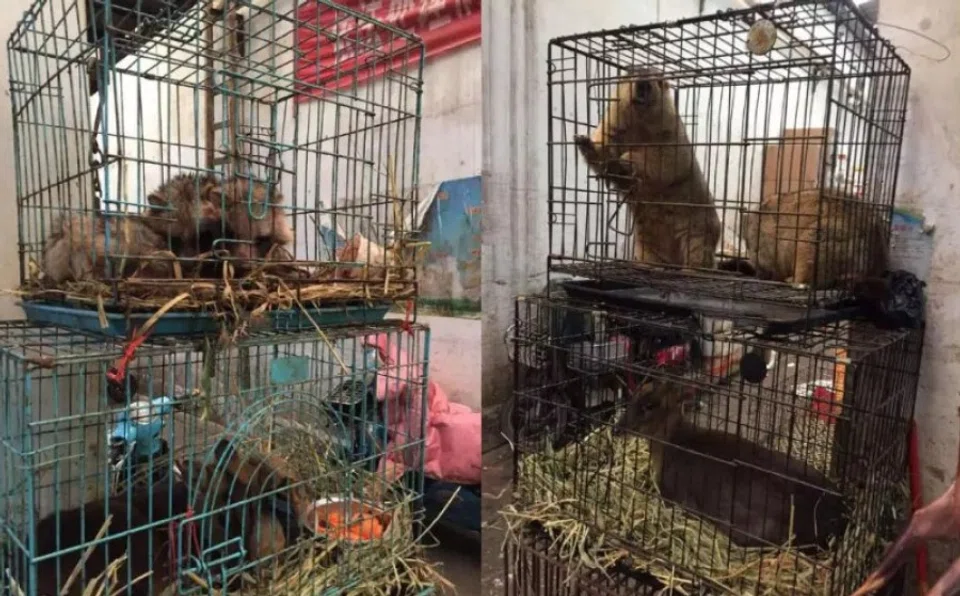Wuhan coronavirus: The search for a permanent solution
Wildlife trade comes under the spotlight again as the Wuhan coronavirus rages on. Will this finally galvanise the authorities to take a tougher stance and find a permanent solution?

The Wuhan coronavirus outbreak is worsening now. Researchers are working hard to determine the natural hosts of the virus. Their success would be very significant for the diagnosis and treatment of the currently rampant disease. The Chinese Academy of Engineering (CAE) academician Zhong Nanshan thinks the virus is linked to wild "bamboo rats or badgers", while some others point to bats or snakes as its origin.
Although the specific species has yet to be identified, it is generally understood that the new coronavirus came from wild animals and was not a virus commonly seen in humans. The now infamous Huanan Seafood Wholesale Market in a busy part of Wuhan gave it a chance for animal-human cross-infection. Close to a train station and two middle schools, the market saw a high volume of human traffic, even as live poultry, livestock and all kinds of wild animals were available there for slaughter on the spot. [NB: China declared a ban on wildlife trade on 26 January that will be maintained until the Wuhan epidemic is declared over.]

The SARS outbreak of 2003, still fresh in our memory, came about because civets were eaten by some individuals, giving the SARS virus a chance to infect people. Things went out of hand from then on, and culminated in a disaster of global scale. [NB: Medical researchers have determined that the outbreak of SARS originated in bats and spread to humans via palm civets sold in Chinese food markets.] As the epidemic grew worse, Guangdong Province promptly decided to shut down all the live animal markets in its urban areas. This was the key moment that turned the tide in our favour in the battle against the deadly virus. We expected people to have learnt their lesson from the whole incident, but they apparently proved to be quite forgetful. After 2004, live animal markets began to operate again in many cities. The Chinese palate has simply never ceased to pursue the taste of the wild.
... many diseases that have wreaked havoc on humanity in recent years were caused precisely by viruses from wild animals...
There is no monitoring of the rearing and feeding of wild animals. Such animals are basically never examined or quarantined by health authorities before they are sold in the markets. This means that they pose a serious hidden threat to our safety since there could be a plethora of unknown, pathogenic microorganisms in their bodies. In fact, many diseases that have wreaked havoc on humanity in recent years were caused precisely by viruses from wild animals, as represented by HIV, SARS, and now, the Wuhan coronavirus. Common poultry and livestock too can dump avian influenza or other zoonotic diseases on us. No wonder epidemiologists had suggested that live animal markets should not be set up in major urban areas.
However, the Chinese - or rather a significant part of Asians - have a tradition of delight in consuming freshly killed animals. It is believed that the freshly slaughtered tastes better. The popular love for game is also driven by ideas of purported health benefits, as well as the psychological attraction of the unusual. And thus, once their torn legs are healed, people wade straight back into the brambles again, so to speak.
...the control of communicable diseases does not merely hinge on advances in medical technology. More pivotal for the early prevention of the spread of diseases among people is enhanced social governance.
But the fact is this: as we look deeper, the government's failure to do its job in terms of management is a very important reason behind the ongoing outbreak. The health authorities failed to shut down live animal markets promptly and completely. The sale of live animals - even game - in such places was condoned. From here stemmed the troubles of today. As we recall, China's disease control system had learnt a profound lesson during the SARS outbreak of 2003 when the epidemic prevention stations, previously almost always in disuse, turned out to be completely powerless against the viral onslaught. Since then, China was able to establish and perfect a disease control system fit for the modern era.

Today, as we deal with the Wuhan coronavirus, medical tests and confirmations can be completed within a month. This shows how far we have progressed in the development of our science and technology. Nevertheless, the control of communicable diseases does not merely hinge on advances in medical technology. More pivotal for the early prevention of the spread of diseases among people is enhanced social governance.
What the current outbreak reveals is that the social governance executed by some local governments truly falls short of the demands of a modernised city. As people keep asking why there is an epidemic again, why the current situation is so similar to that in 2003, I believe we need to do more than just working on diagnosis and treatment. When the epidemic is over, we need to perform a full review and upgrade of the standard of social governance delivered by the local governments. Only this can be a permanent solution, once and for all.





![[Photos] Fact versus fiction: The portrayal of WWII anti-Japanese martyrs in Taiwan](https://cassette.sphdigital.com.sg/image/thinkchina/3494f8bd481870f7c65b881fd21a3fd733f573f23232376e39c532a2c7593cbc)